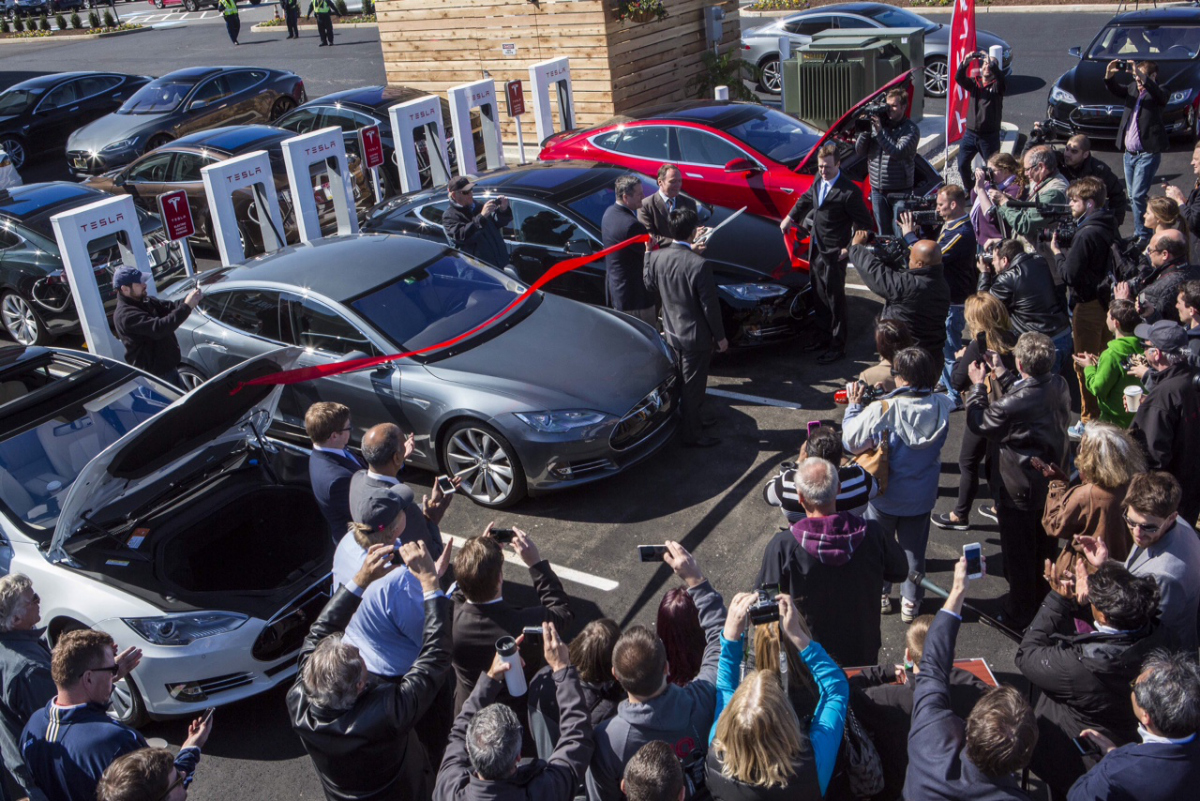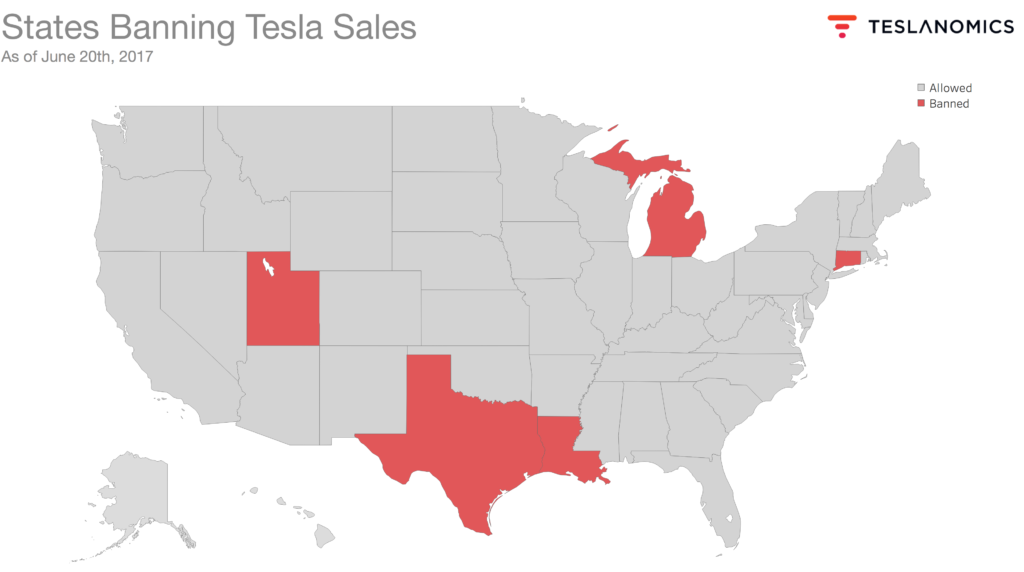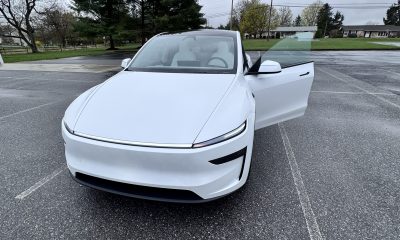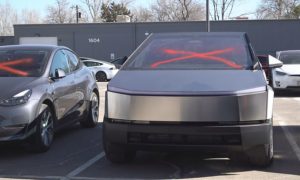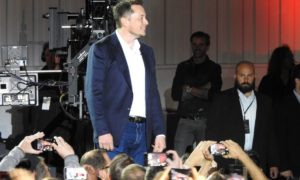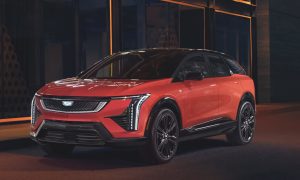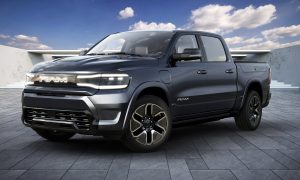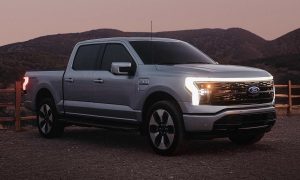Tesla’s unique business model allows them to sell vehicles directly to consumers through both retail locations and Tesla’s online design studio. Direct-to-consumer sales of its vehicles have led to some turbulence with existing car dealerships in many states, including Utah, Louisiana, Connecticut, Texas and Michigan. New Jersey allowed Tesla to open direct sales in the state in 2015, but with conditions. New Jersey’s legislation limited the number of direct-to-consumer dealerships per manufacturer to four stores and required at least one service center in the state. Tesla CEO Elon Musk once compared local car dealers to a mafia protection racket, stating in a Tesla blog post, “The rationale given for the regulation change that requires auto companies to sell through dealers is that it ensures ‘consumer protection’…Unless they are referring to the mafia version of ‘protection’, this is obviously untrue.”
Tesla recently launched a lawsuit to overturn a sales ban put into effect in Michigan in 2014 that prevents the Elon Musk-led electric carmaker from selling directly to consumers within the state. The greatest opposition against Tesla’s plea for direct sales in Michigan comes from both auto dealers and manufacturers, who argue that Tesla disrupts the traditional franchise dealership model.
Courtesy of Teslanomics.co
Ironically, Michigan and Texas which bans Tesla’s direct sales model have public pensions that are significant investors in the Silicon Valley company. However, that isn’t the only financial interest states have in Tesla. All states in the US rely heavily on sales tax to generate revenue. States without stores are forcing owners to purchase and service their vehicles out-of-state, missing out on sales tax in the process, a major revenue loss.

Source: Bloomberg, September 2016
Bill Wolters, of the Texas Automobile Dealers Association, is claiming that the introduction of Tesla into the Texas car market would “reduce competition”, and will incur costs for Texas. However, this argument assumes that dealers are creating added value for their consumers, and if that argument holds, then dealers should be able to keep customers in the market after Tesla enters. Additionally, Tesla is competing against other manufacturers and not franchises.
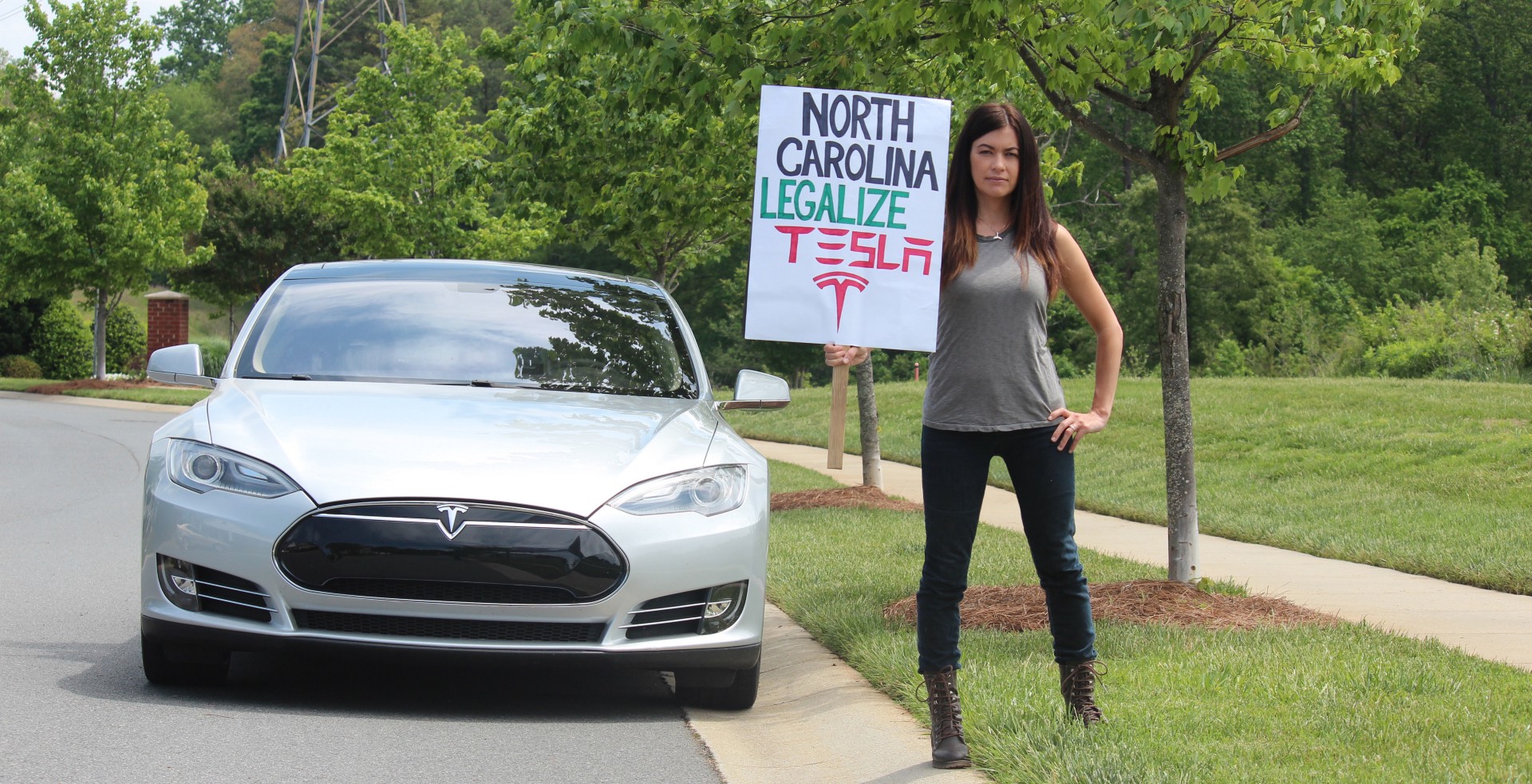
Racecar driver and environmental activist Leilani Munter protest’s North Carolina’s ban on Tesla’s direct sales model (Photo: Medium/Leilani Munter)
Out of a presumed 400,000 reservations for the Tesla Model 3, it is estimated that roughly half originate from the United States, according to the distribution of early Model 3 reservation data from Model3Tracker.info. Using a loosely estimated assumption of Tesla Model 3 reservations originating from banned states via Model3.ocasual.com, we get the following numbers: 1,250 in Louisiana, 2,980 in Connecticut, 3,076 in Utah, 15,670 in Texas, and 4,230 in Michigan.
The sales tax for Michigan is 6%, Louisiana is 9%, Connecticut is 6.35%, Utah is 4.7%, and Texas is 6.25%
This equates to a loss of $8,883,000 for Michigan, $3,937,500 for Louisiana, $34,278,125 for Texas, $6,623,050 for Connecticut, and $5,060,020 for Utah. That’s a total of $59,791,695 in loss revenue, which does not factor in current sales of Model S and Model X.
| States with Tesla Ban | Sales Tax | Estimated Tesla Model 3 Reservations | Projected state revenue loss (in dollars) |
| Louisiana | 9% | 1250 | $3,937,500 |
| Texas | 6.25% | 15670 | $34,278,125 |
| Michigan | 6% | 4230 | $8,883,000 |
| Connecticut | 6.35% | 2980 | $6,623,050 |
| Utah | 4.70% | 3076 | $5,060,020 |
Navigant Research believes that sales electric vehicles, including hybrid/plug-in hybrid, are set to comprise 9 percent of total vehicle sale by 2025. Currently, EVs make up 3% of total vehicle sales, but the number in 2016 saw a 36 percent increase in sales in the US alone. In 2016, 4,500 EVs were sold in Texas, 2,470 in Michigan, 270 in Louisiana, 1,452 in Connecticut, 1,132 in Utah, and 70 in West Virginia. Texas, Connecticut, and Michigan ranked among states with some of the highest EV sales. Of electric vehicles sold total in 2016, the Tesla Model S was the leading electric vehicle with ringing in at 29,156 vehicles. The Tesla Model S also outsold its entire class of vehicles, combined. Tesla is expecting high demand for Model 3, which will start at roughly half the cost of the Model S.
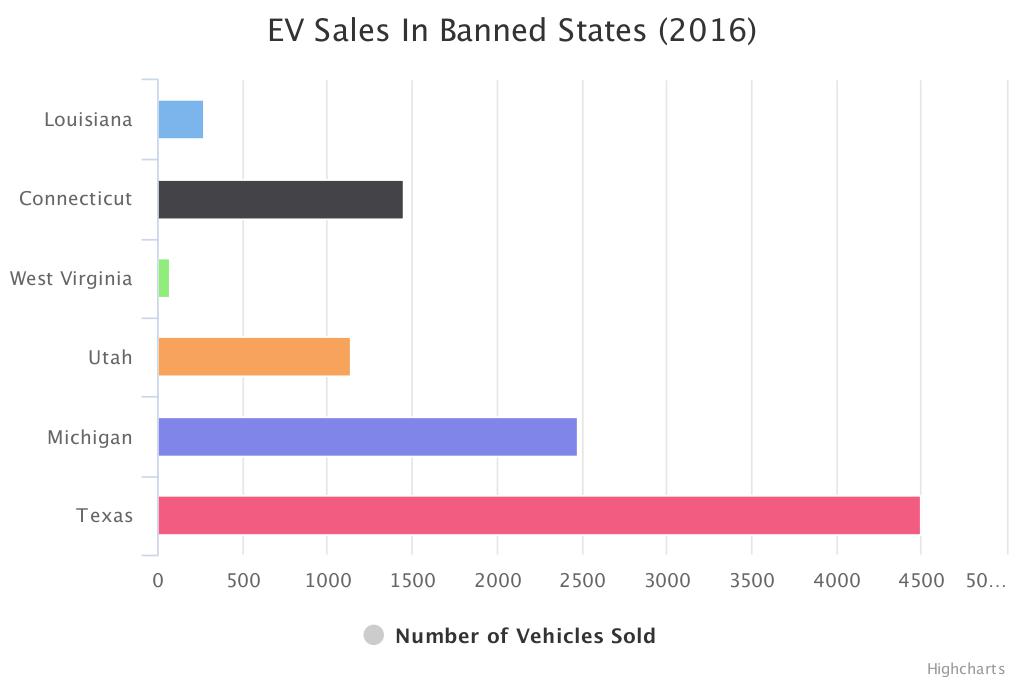
Source: Topspeed.com
There are currently 223,319 estimated Model 3 reservations in the United States, far greater than the sales of comparable vehicles. The BMW 3 and 4 series which sold around 106,000 vehicles in 2016 and the Mercedes C-Class sold around 77,000 vehicles in 2016. Tesla CEO Elon Musk is expecting to produce 500,000 vehicles in 2018 and tens of thousands this year (Tesla hasn’t released Model 3 production guidance for 2017). Musk’s expectations could make the Model 3 the highest selling vehicle in its class in both 2017 and 2018. The states that ban Tesla dealerships not only miss out on sales tax revenue from Tesla vehicles but in turn create an inconvenience for residents. By instating a direct sales ban on Tesla before the launch of Tesla Model 3, states will not only lose millions of dollars in sales revenue per year but also interfere with and disrupt free market competition and consumer activities.
Feature image courtesy of Delanman via Twitter.
News
Tesla counters Saudi Arabia charging concerns with quick response
Tesla launched 24 new Superchargers in Saudi Arabia just one day after concerns arose regarding charging availability.
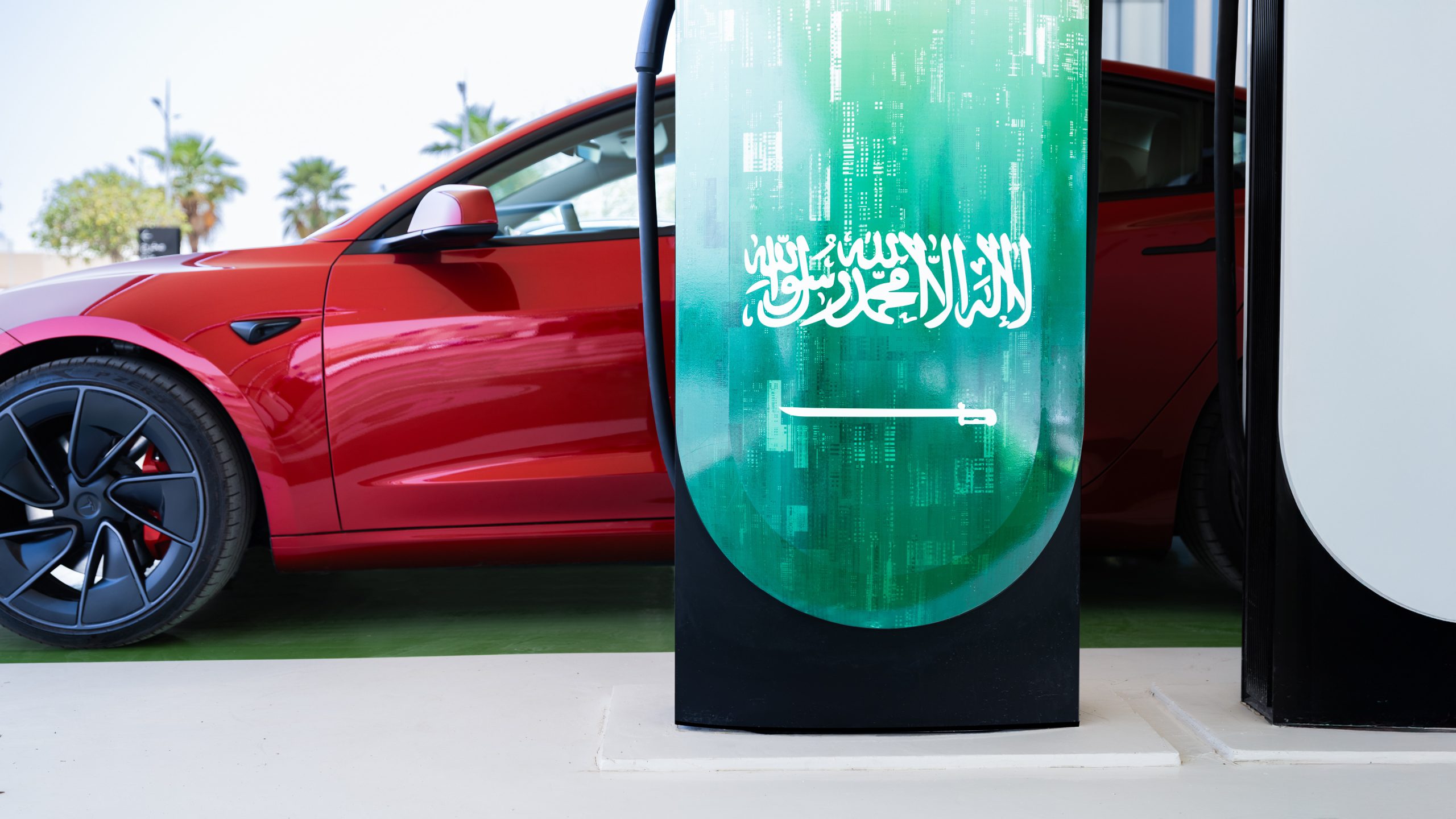
Tesla has countered concerns regarding the availability of electric vehicle chargers in Saudi Arabia with a quick response as it launched 24 Superchargers in the country’s most populated cities just one day after launching deliveries in the country.
Tesla announced that it was launching deliveries of the Cybertruck in Saudi Arabia, Qatar, and the United Arab Emirates on Thursday.
However, there were grave concerns about the availability of EV charging in the region, as Tesla had not built any Superchargers in Saudi Arabia, and there were only a small number built to begin with by other companies.
Tesla confirms Cybertruck will make its way out of North America this year
A report from Reuters earlier this week highlighted those challenges and concerns surrounding EV charging:
“As of 2024, Saudi Arabia had just 101 EV charging stations, compared with 261 in neighbouring United Arab Emirates, a country with a third the population, data from Statista based on Electromaps showed.
Most are in major cities, making long journeys across desert highways unfeasible.
‘I think charging is probably one of the main, if not the main, point of concern,’ said Carlos Montenegro, BYD’s general manager in Saudi Arabia, adding Saudi drivers clock up many more kilometres each year than in other markets.”
However, Tesla quickly responded by announcing the construction of 24 new Superchargers in Saudi Arabia:
🚨 Tesla has answered concerns about charging with its first Superchargers in Saudi Arabia!
24 total stalls is a great start! https://t.co/stQ5Q16GZK pic.twitter.com/rqTfjrivW3
— TESLARATI (@Teslarati) April 11, 2025
The chargers are installed in eights – Eight in Riyadh, eight in Jeddah, and eight in Dammam. However, these are not the only charging piles that Tesla plans to build in the Kingdom. It also announced plans to establish more in those three cities later this year, additional builds in the cities of Taif, Medina, and Buraydah next year, and the development of the Jeddah-Riyadh-Dammam highway.
This was a quick answer for the skeptics who were worried about charging, which was a valid concern. Tesla will continue to expand its Supercharger presence in the Middle East as it begins to deliver more vehicles. For now, this small rollout is a great start.
News
Tesla released the Cybertruck RWD to make the AWD look like a deal
Cybertruck LR RWD is effectively a $69,990 pickup that does not have 120V and 240V power outlets on its bed or 120V outlets in the cabin.
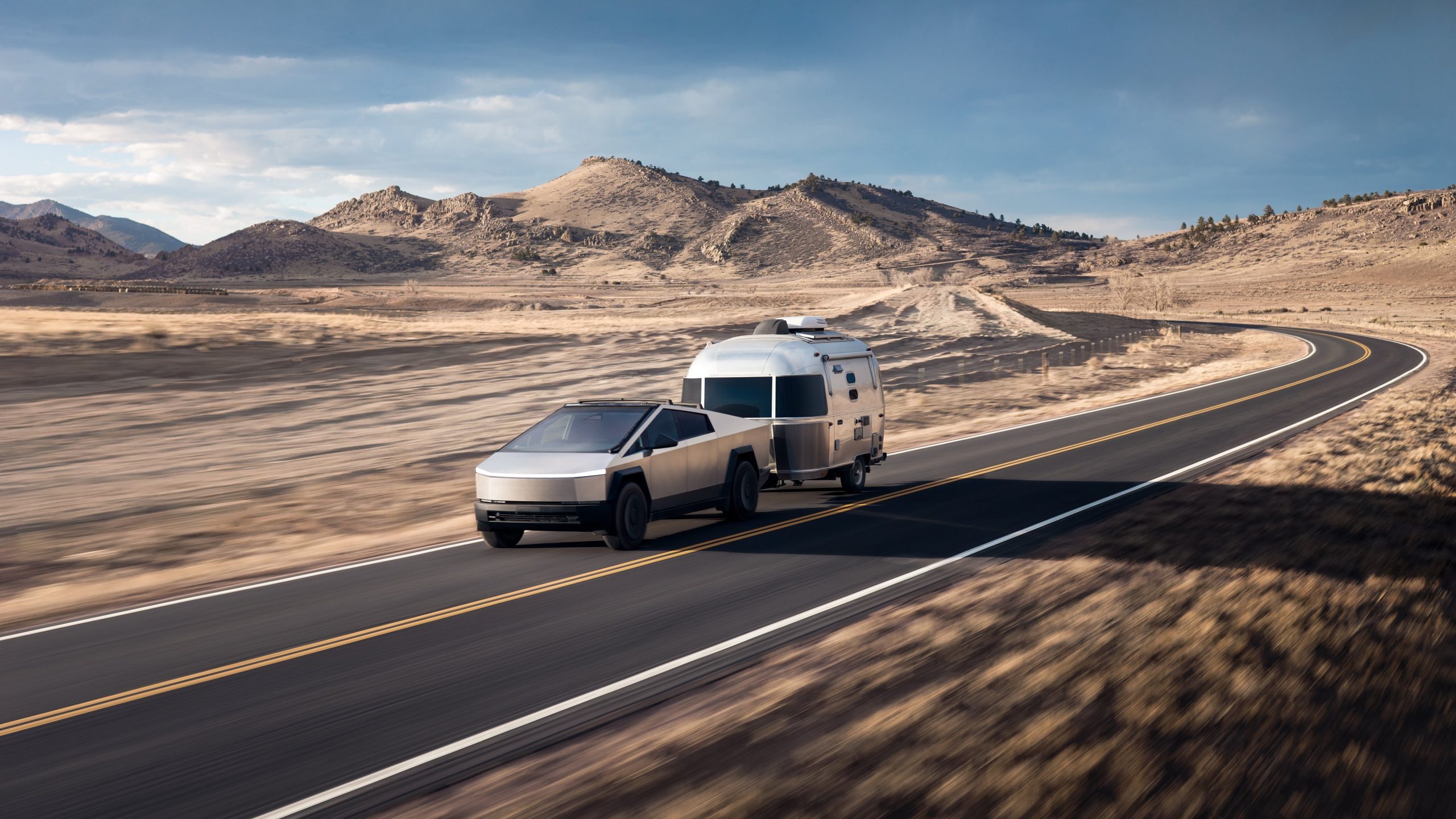
Tesla released the Cybertruck Long Range Rear Wheel Drive (LR RWD) recently, and it quickly received mixed reactions from the electric vehicle community. While the truck was praised for its long range, many argued that it was far too expensive due to the long list of features that it is missing compared to the Cybertruck All Wheel Drive (AWD), the mid-range variant of the all-electric pickup truck.
A look at the Cybertruck LR RWD’s pricing and features suggests that Tesla designed and priced the vehicle to push more buyers to opt for the Cybertruck AWD instead.
So Much Missing
The Cybertruck LR RWD costs $10,000 less than the Cybertruck AWD, but it is substantially less equipped compared to its mid-range counterpart. While the Cybertruck LR RWD’s slower 0-60 mph time, lower towing and payload capacity, textile seats, and fewer speakers are understandable, missing features such as the lack of air suspension, HEPA filter, and active noise cancellation make the vehicle truly a stripped down version of the all-electric pickup truck.
Considering that it is the most affordable Cybertruck available today, it would be fair to expect the vehicle to be geared for consumers who truly use their trucks for work. However, the Cybertruck LR RWD seems like a pretty expensive and under-equipped work truck, as it is effectively a $69,990 pickup that does not have 120V and 240V power outlets on its bed or 120V outlets in the cabin. It doesn’t even have otherwise basic Cybertruck features like the rear light bar, which is part of the pickup truck’s iconic, futuristic look.
Must Be Cheaper
The long list of missing features from the Cybertruck Long Range RWD has incited a lot of conversations among electric vehicle enthusiasts on social media, with some EV fans stating that the cost of the features that Tesla removed in the LR RWD seem to be worth far beyond $10,000. Others noted that with its (very) stripped-down nature, the Cybertruck Long Range Rear Wheel Drive should have been priced around $55,000, or at least closer to Elon Musk’s previous comments about electric pickup truck prices in the past.
Back in 2019, Elon Musk noted during an interview on the Ride the Lightning podcast that he believes consumers should be able to purchase a decent electric pickup truck for less than $50,000. “You should be able to buy a really great truck for $49k or less,” Musk stated then.
The Cybertruck was ultimately unveiled in November 2019 with a starting price of $39,990. If one were to adjust for inflation, Elon Musk’s sub-$50,000 Cybertruck price estimate would be worth $62,811 today, which is roughly the price of the Cybertruck LR RWD with the federal tax credit. For context, the Cybertruck’s $39,990 base price during its November 2019 unveiling is worth $50,249 today if adjusted for inflation.
A Boost to Cybertruck AWD
One would not be faulted to speculate that Tesla released the Cybertruck Long Range Rear Wheel Drive as a way to encourage customers to purchase the more expensive Cybertruck All Wheel Drive. For just $10,000 more, after all, customers would be getting a substantially better-equipped vehicle with better performance and far more utility.
It remains to be seen how well the Cybertruck LR RWD would sell, though considering its stripped-down nature, there seems to be a chance that the variant would follow the same path as the $35,000 base Model 3 Standard Range RWD, which was briefly sold but eventually retired due to low orders. What the $35,000 Model 3 did, however, was push a lot of sales of the Model 3 Standard Range Plus, which ultimately became one of Tesla’s volume sellers and is still in production today simply as the Model 3 RWD.
News
RBC cuts Rivian price target to $10 ahead of earnings report
Rivian hit 8.6K deliveries in Q1 2025 and reaffirmed targets. RBC cut its price target, all eyes are on May 6 for Rivian’s earnings call.

RBC Capital cut its Rivian price target to $10 ahead of the automaker’s Q1 earnings report.
RBC Capital dropped its price target for Rivian Automotive from $12 to $10 per share, sticking with a “Sector Perform” rating as it braces for the automaker’s first-quarter earnings. The firm’s new Rivian price target includes predictions for a March sales bump tied to looming tariffs, though RBC cautions that earnings may not fully reflect trade impacts.
Rivian produced 14,611 vehicles and delivered 8,640 in Q1 2025 at its Normal, Illinois plant. The company held steady on its full-year outlook, reaffirming its 2025 delivery guidance of 46,000 to 51,000. Rivian will release its first-quarter 2025 financial results on May 6 after market close.
RBC sees guidance shifts looming across the auto sector, possibly cutting estimates despite already lean consensus targets. It favors OEMs over suppliers amid macro jitters. The firm suggests tariff-free optimists could score big by betting on the “entire automotive group.”
According to GuruFocus, the average target price for Rivian is $14.54 with a high estimate of $23.00 and a low estimate of $6.10. Based on consensus recommendations from 31 brokerage firms, Rivian has a Hold rating on average.
The shadow of tariffs looms over the auto market, yet Rivian’s output holds firm against peers like Lucid, which face similar headwinds. RBC notes, “guidance in the auto sector could experience alterations,” signaling volatility ahead. Rivian’s Q1 haul—while solid—won’t fully decode trade effects, leaving investors eyeing May’s update for clarity on its EV trajectory.
-
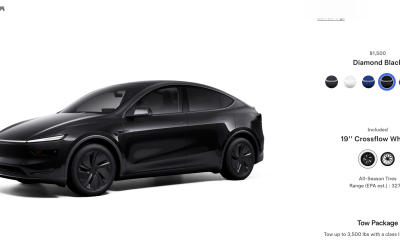
 News1 week ago
News1 week agoTesla rolls out new, more affordable trim of the Model Y Juniper in U.S.
-
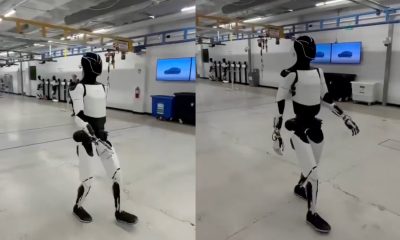
 News1 week ago
News1 week agoTesla shares Optimus’ improved walk in new update video
-

 News2 weeks ago
News2 weeks agoTesla US Gigafactories shields from Trump’s 25% Tariffs
-
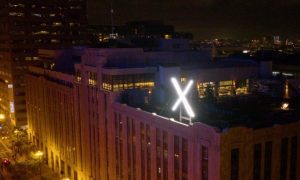
 Elon Musk2 weeks ago
Elon Musk2 weeks agoMusk says xAI has acquired X in $33 billion stock deal
-
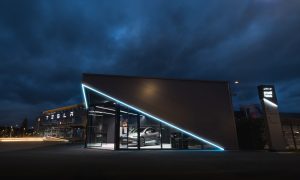
 Elon Musk1 week ago
Elon Musk1 week agoTesla Germany reports 4,935 units sold in Q1 2025
-
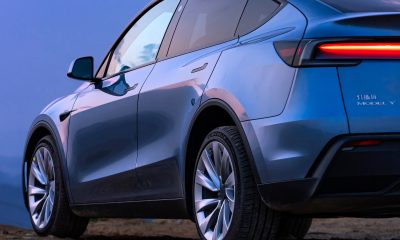
 Investor's Corner2 weeks ago
Investor's Corner2 weeks agoTesla (TSLA) shares company-compiled Q1 2025 delivery consensus
-
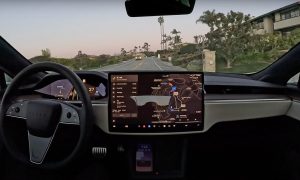
 News1 week ago
News1 week agoTesla expands Early Access Program (EAP) for early Full Self-Driving testing
-

 Elon Musk2 weeks ago
Elon Musk2 weeks agoNYC Comptroller moves to sue Tesla for securities violations

